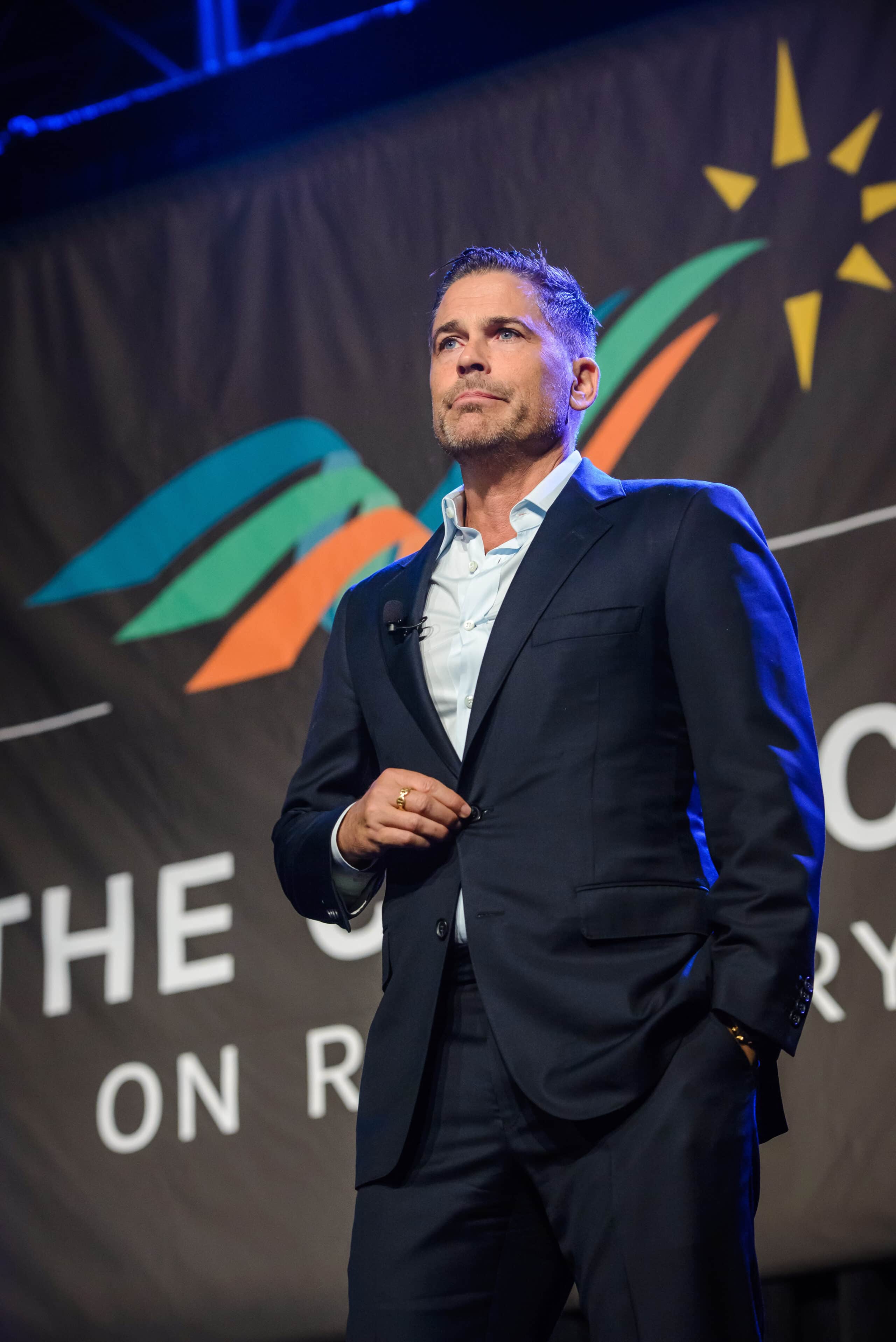
Iconic Hollywood star, Rob Lowe, helped The Council on Recovery’s Fall Luncheon exceed all expectations in terms of size, money raised, and rave reviews from attendees. Nearly 1,270 enthusiastic Council supporters filled the Hilton Americas grand ballroom on October 20th to hear the celebrated actor, author, and producer tell his personal story of recovery from alcoholism and addiction. In the process, he helped The Council raise more than $600,000 to fund its critical programs and services.
With preceding remarks from Luncheon co-chairs, Patricia and George Joseph and Brad Sears, and heartfelt introduction by Jerri Duddlesten-Moore, Lowe immediately embraced the Houston crowd by expressing admiration of the city’s efforts during Hurricane Harvey. Citing the armada of bass boats that came to the rescue of many, and the outpouring of help from people all over, Lowe saluted the awe-inspiring way Houston responded to the disaster.
Turning from the recovery of the city to his own personal recovery, Lowe told the intimate story of his alcoholism and addiction. “I regret absolutely nothing in my previous iteration of myself,” Lowe said, “because without having gone through the ups and downs…I wouldn’t be where I am today, which is the happiest I’ve ever been.”
Sober 27 years and happily married for 26, Lowe said, “My wife, Sheryl, was a great impetus for getting me sober. She knew me when I was a young, crazy maniac. She loved me then, and I inevitably screwed that up, and she was able to say, ‘I love you and I’ll always be your friend, but I can’t be with you like this’.” That realization, coming on the heels of getting so drunk that he ignored his mother’s calls about his critically ill grandfather, brought Rob to a critical turning point in his life.
“I remember like it was yesterday: Walking into my bathroom and …looking myself in the mirror, and going, ‘This is it, you’re done’,” Lowe said. After calling a drug and alcohol interventionist, whose card he had been carrying in his wallet for two years, he was “…shuffled right off” the next day to a residential treatment center in Arizona. “What I later learned,” Lowe said, “was I beat the intervention they going to plan by a week!”
Shortly into sobriety, Rob faced the prospect that he wouldn’t be able to drink for the rest of his life and the concern that he would never be able to have fun again. But as he settled into a sober life and hung out with others in sobriety, he said, “…this was the coolest group ever!” And lots of fun, too. “If I weren’t having fun [in sobriety] I’d go back. We’re meant to be happy, joyous, and free, and I found that through a new, cool peer group and have way better heroes than I did back then.”
Affirmations have been important in Rob’s recovery. “I love…[the affirmations] and every one of them changed my life. My all-time favorite probably is ‘Never compare your insides to some else’s outsides,’ particularly good for someone in a business like mine.”
On raising his two sons to adulthood in sobriety, Lowe said, “As a parent, we all know how hard it is to help them navigate…how much is too much? The hardest thing in sobriety for me was the gift of knowledge and…you see the behavior [in the kids] and you say, ‘Yeah’, but there’s nothing that can be done.” He said guiding children is like having gutter-rails on a bowling alley, “…so they can’t bowl gutter balls, but you can’t make them throw strikes. All you can do is put the rails up and hope that they, literally, get through it. And get enough information and have enough experience to make the choices that they need.”
With his own long-term sobriety, Lowe still acknowledges the real key to getting sober. “The secret is, you can’t get sober for your wife. You can’t get sober for your husband…or for your job…or for the courts,” Lowe said. “You can only get sober for you. And until you’re ready, its very…. tough to do.”
Emphasizing the importance of The Council on Recovery’s work, Lowe said, “Organized recovery saved my life. I needed what you guys do on a daily basis and do so well in so many facets. What [The Council is] doing every single day now is so important because, in a time when…everyone is different from everybody else…and no one’s coming together, it makes this message more powerful than ever.”
